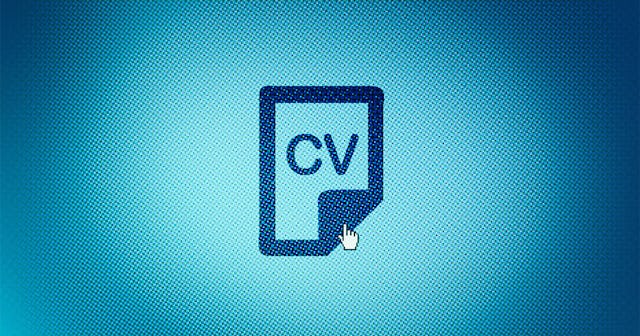Some Gen Z Job Applicants Are Cutting Campus Political Activism From Their Résumés — And We Don’t Blame Them

For the many Gen Z job applicants who came of age during the Trump years, much of their transferable skills and relevant work experience came thanks to campus political activism. And though the work was likely meaningful and transformative — as well as useful — these new college grads are now censoring any possibly polarizing work on their CVs.
According to a Harvard Institute of Politics spring 2021 poll, 36% of adults aged 18 to 29 considered themselves politically active, as compared to 24% in 2009. During the 2020 elections, the Center for Information and Research on Civic Learning and Engagement at Tufts University reported that 18% of young people aged 18 to 24 volunteered on a political campaign — 13% more than the same age group in 2016. An American National Election Studies survey reported that 19% of 18 to 24 year olds said they’d participated in a protest demonstration in 2020, as compared to 7% in 2016.
However, in a recent Washington Post article, newer college graduates are reluctant to include their on-campus political activism — even at the risk of making themselves seem less experienced. Many have two separate résumés: a public one that is “sanitized” of anything potentially polemic, and a private one which includes their entire background in case they apply for jobs within their political bubble. (In general, I suggest you have a full CV with all work experience — and then tailor your CVs for individual positions or fields — but that’s just me. I’ve worn a lot of hats in my time.)
Why are young people scrubbing their political activism?
Of course Gen Z is scuttling the controversial bits of their work and volunteer history — even if it risks them seeming as if they have less experience than what they actually have. It doesn’t even matter that Gen Z is more politically active than previous generations.
Anyone who has ever applied for a job knows there are all sorts of potential landmines in the job-hunting process if you don’t already know someone on the inside.
Unconscious name bias exists (which everyone knows is just code for racial profiling), and people of color have been trying to mitigate its affects since forever. People — especially stay-at-home-parents (but usually mothers) — try to minimize gaps in their “official” work history — because let’s face it, child care and volunteering at schools isn’t considered “work”… even though it is. Older adults try to minimize their work history so they don’t seem “too experienced” (code for too old), and younger folks try to pad it for the opposite reason.
Even in this current job market of 10 million available jobs — Gen Z is right to be cautious.
Confirmation bias happens — and political identity is not a protected class
There’s a reason why Gen Z wants to be careful about their activism — regardless of their political party. Even though some cities like the District of Columbia have protections in place so private-sector employees are not discriminated against due to their political affiliation, in general, political identity is not a protected class.
“So for the most part, an organization can make a decision on whether to hire you based on your social and political activities,” Edgar Ndjatou, the executive director Workplace Fairness, told the Washington Post.
Plus, let’s be real. Left to their own devices, people tend to hire people just like them. This is the same force at work when we choose who we believe and who we don’t. Confirmation bias (aka: myside bias) is a kind of unconscious bias that is at work full force during the hiring process.
For better or for worse, we all have stereotypes and shortcuts in thinking about people and groups. Of course Gen Z applicants don’t want whatever stereotypes attached to their particular brand of activism to hinder their abilities to get a job — whether that position is at a huge, global corporation or a small, local business.
If that seems like selling out — so be it. People have to survive, and I’m here for it.
This article was originally published on